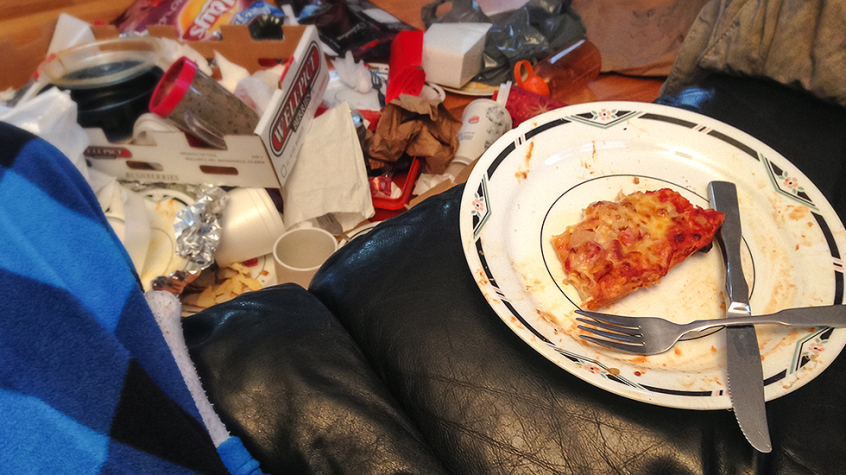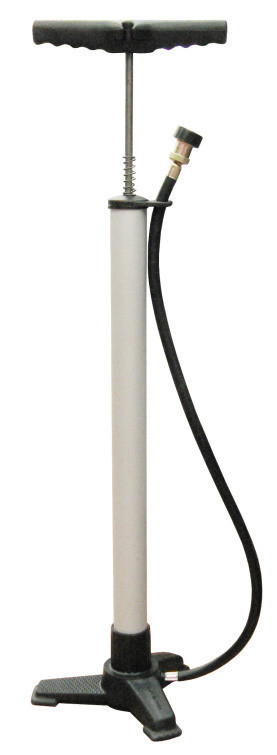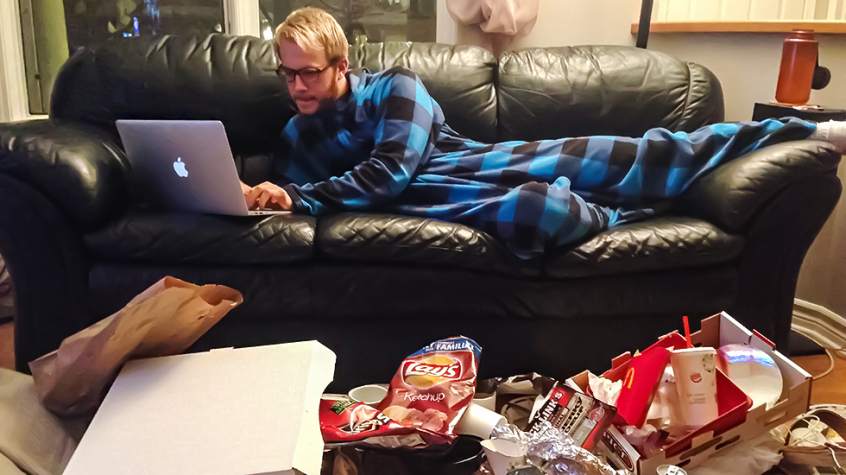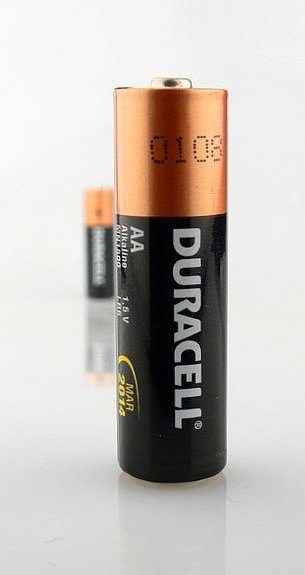Main 10 lessons about productivity, which I learned, indulging in idleness for a week

We continue to acquaint you with the translations of Chris Bailey's articles, where he shares the tips that he learned during the “a Year of Productivity” project . We have previously published articles by this author, they are available in our blog in the "personal productivity" section . We want to remind you that the common goal of all articles is to share the author’s experience of how to become more successful and effective everywhere: in your personal life, relationships with friends, yourself, and of course at work (whatever you do)!
So we give the word to Chris!
')
Main conclusions:
Instead of lazy, be kind to yourself, distribute your time, and to let off steam, do not indulge your desires - find pleasant ways to relieve stress, for example, massage. Learn how to manage your attention and the expectations that other people place on you. Bear in mind that good and bad habits should be taken together. If you want to make changes in your life, start with small ones so that they truly become part of your daily life. Finally, do your best to find more sources of energy.
Does this relate to meditating for 35 hours a week, watching 70 hours of video on TED talks for 7 days, living in complete solitude for 10 days or using my smartphone only an hour a day , I like to view productivity from different angles, and then describe everything i learned.
All last week I was an absolute lazy in the name of productivity. I only took a shower twice, ordered a takeaway at least once a day, watched TV at least 2 hours a day and did not play sports, did not meditate, did not shave, did not get up early, did not spend time with people. As in the cases with previous experiments, I made a lot of conclusions, which I will write below.
Here are 10 basic productivity-related lessons that I learned while indulging in idleness last week!
10. Be kind to yourself.
 No matter how you strive to increase productivity, if this process does not go easily, you will not appreciate your productivity. At the end of the day, it will make you much less happy, and all your accomplishments will mean much less to you. Several ways to be kinder to yourself? Take more breaks, lower your expectations, develop habits that make you happier, and meditate!
No matter how you strive to increase productivity, if this process does not go easily, you will not appreciate your productivity. At the end of the day, it will make you much less happy, and all your accomplishments will mean much less to you. Several ways to be kinder to yourself? Take more breaks, lower your expectations, develop habits that make you happier, and meditate!9. Even if you want to be lazy (or relax), you should allocate your time.
Sunday afternoon is the least happy and productive hour in the United States. Why? Because during this period people are least disposed to plan their time. The distribution of your time (at least a little) helps you focus, motivates, makes you happier and gives you goals, because it sets the framework within which you can live.
Even if you want to go on week, planning your time in general will allow you to maintain a positive attitude.

8. People with high productivity have the talent to manage their attention.
By bringing into my life such habits as eating well, playing sports, and meditating, I began to better manage my attention since I began my A Year of Productivity .
But during this particular experiment, I found myself in a constant search for ways of immediate satisfaction - in the form of tasty fast food, which I could order, something entertaining on TV or a fun new toy that I could play on my iPad. At some stage of the experiment, I finally stopped controlling my attention and began to constantly be distracted by one thing or another.
Depending on how future-oriented you are, you may find yourself rushing from one extreme to another; jump from activities that attract you momentarily to those that are useful to you in the medium or long term.
The better you manage the attention, the better you manage to direct it to classes that are more useful for you in the long run, while at the same time managing to get joy from what you are doing in the short term.
7. Do not forget to “let off steam” from time to time.
 I like bubbling about how badly lazy and how to try to increase productivity, but I also think that it is important to let off steam from time to time and relax. We are not robots, besides, we should not take our desire to increase productivity too seriously.
I like bubbling about how badly lazy and how to try to increase productivity, but I also think that it is important to let off steam from time to time and relax. We are not robots, besides, we should not take our desire to increase productivity too seriously.I am not saying that there is any value in being lazy; after all, when you really are one, you don’t bring anything to your well-being or those around you. However, steam is sometimes necessary. Do not abuse, but try to reward yourself by overcoming new milestones on the path to productivity.
Allow yourself to be lazy - this is one of the ways to let off steam, but in the long run, not the most useful. Is there a more rewarding way to relieve stress? This is finding a more positive, effective outlet for stress relief.
6. Find positive vent to relieve stress.
Scientific studies have shown that when you have stress, the brain tries to find the fastest way to solve a problem. But these solutions usually turn out to be temporary and in fact do not reduce the level of stress hormones in the body. 9 positive, proven ways to really reduce stress? Exercise, meditation, reading, music, a walk in nature, communication with loved ones, massage, creative hobby, going to church.
5. Indulging one's immediate desires is not love for oneself.
All week during the experiment I indulged my desires; eating, watching and listening to something brought me quick satisfaction. But after reflecting on the experiment, I came to the conclusion that indulging my passions is not the same as self-love.
When you indulge your desires (shopping, food, watching TV), you are, in fact, investing your time in entertainment that does not bring you any return, besides some momentary pleasure. I do not think that you call self-love anything that harms your mental or physical health. Self-love has nothing to do with indulging one's weaknesses, it is associated with respect and sympathy for oneself.
Respect for oneself includes finding a positive outlet for stress relief and investing time in oneself, instead of simply wanting quick satisfaction. For a moment, this seems like a fun pastime, but in the end it hurts your mental and physical health.
4. Learn to manage other people's expectations of you.
In my opinion, many people are deceiving themselves, thinking that their colleagues or clients rely on them much more than is actually happening. For this reason, they often constantly check corporate email in the fear that colleagues will not cope without them.
But last week, when I made myself inaccessible, I found this to be a delusion. When people know that you are inaccessible, they are fine without you. Unless you are Barack Obama, the world will not collapse when you step back from your work. People will find a way to solve their problems miraculously.
I think one of the most useful skills you can get is learning how to manage people's expectations of you. If people know that you are not available in the evenings, on weekends and being on vacation, you will reduce your stress and general workload. And since pauses in work can greatly increase your productivity , in the end it will be even better for your work.

3. Bad habits need to be taken together
During my week of total idleness, I invested my time and energy only in classes that stimulated my mind and body only for a short time. After the first use of fast food, I noticed that my energy level dropped, and then continued to decline rapidly over the course of a week. A few days without a shower and a normal meal led to acne on the face, which is why I started worrying about my appearance. The lack of sports has further reduced my motivation, as a result, my desire to eat fast food has become even stronger. And so on.
I personally believe that even if you consider your habits separately from each other, they are closely related. When you acquire a bad habit, it can lead to new bad habits or even make you give up good ones. Thus, you pay a higher price for acquiring bad habits than you expected.
Fortunately, good habits should also be taken together.

2. Start small.
Very small.
I think the key point in achieving greater productivity is to make just one small change at a time. This may seem paradoxical, but the reason is simple: the less change you try to make in your life, the more likely you are to do it.
Interestingly, the more I was lazy, the more my determination to become more productive, but the irony was that I had less energy, willpower and focus on real changes. The further I went into the experiment, the more I wanted to make changes in my life, and the more I introduced myself to the increased demands.
The key to successfully making changes in your habits, behavior, and daily activities is to start small, very small, because that way these changes really integrate into your life. I played with changing my habits and daily activities for eight months with this project, and when I make changes to my habits, I still try to make them as small as possible so that it really works.
This is paradoxical. But when you are determined to make a change in your habits, if you want it to work out, take the smallest steps.
1. Do your best to find more sources of energy.
 In the course of the experiment, halfway through, I realized something interesting: I removed from my life everything that gave me the most energy, including exercise, healthy food, meditation, people, earlier awakening, and a sense of purity. When I lost all of these things at once, my productivity dropped instantly, but the two main sources of energy that I missed most were exercise and proper nutrition.
In the course of the experiment, halfway through, I realized something interesting: I removed from my life everything that gave me the most energy, including exercise, healthy food, meditation, people, earlier awakening, and a sense of purity. When I lost all of these things at once, my productivity dropped instantly, but the two main sources of energy that I missed most were exercise and proper nutrition.If physical exercises were in the form of pills, you would take one each day, because it gives such great benefits. It's not just that you stay in good shape (although this is a nice bonus). Sport improves brain function, relieves stress, gives more energy, prevents heart disease, cancer, diabetes, diseases of the immune system, trains the heart, prolongs life, and this is only the beginning of the list. If you seriously intend to become more productive, exercise. Everything is so simple. You will need some willpower to drag yourself to the gym, but it's worth it.
Another way to get a lot of energy is to eat right. At the most elementary level, food is the fuel that charges you for a day. If you fill your body with high-quality fuel, you naturally supply your mind and body with enough energy for high productivity. But if you eat garbage all day (or all week), as I did, your energy level, motivation and ability to concentrate will fall.
In my opinion, if you are serious about your intention to become more productive, you should do everything possible to find more sources of energy. At the basic level, we humans have two main resources: time and energy. There is no way to increase the amount of time, but there are hundreds of things that you can do right now to become more energetic and at the expense of it better dispose of the time available.
Everything is good in moderation
I recognize that there is a certain degree of freedom in being lazy when you are not bound by your own limitations and are not subjected to pressure from yourself or the outside world. Of course, at first you can feel guilty about wasting time, but when you start jumping from one entertainment to another - food, TV, movies, video games, even more food - you become the notorious metal ball in the slot machine. You jump from entertainment to entertainment, unable to overcome the force of attraction to the next bar of chocolate, unable to resist the temptation to go through another level or watch the next one series of the "House of Cards".
There is nothing wrong with relaxing and climbing a sofa with legs. In fact, although I dedicated a year of my life to increasing my productivity as much as possible, I am ready to argue that to relax, take pauses and put myself in order on the mental and physical level is very important if you want to become more productive.
But like all good things, laziness is good in moderation. Laxity deprives you of energy, awareness, motivation and, if you are not careful, even happiness - the reasons why you want to increase productivity.
PS Some time ago we published one of the most interesting articles from Chris Bailey - Zen Early Awakenings: 10 ways to fix the morning ritual .
Translated by Vyacheslav Davidenko, founder of MBA Consult
Source: https://habr.com/ru/post/283618/
All Articles